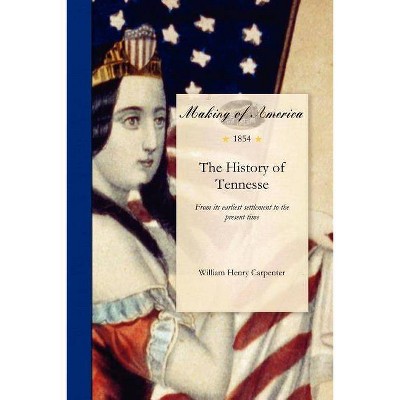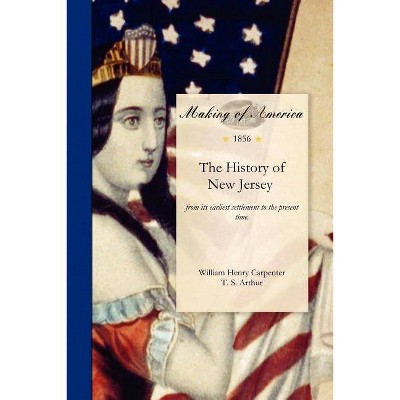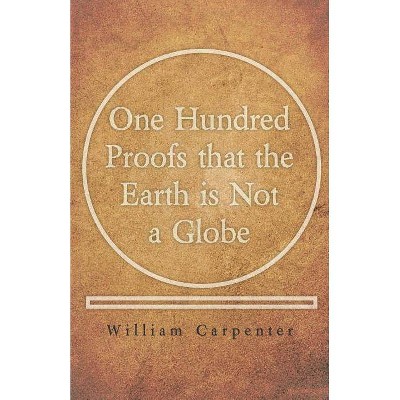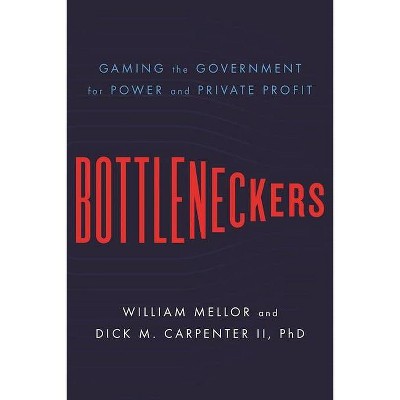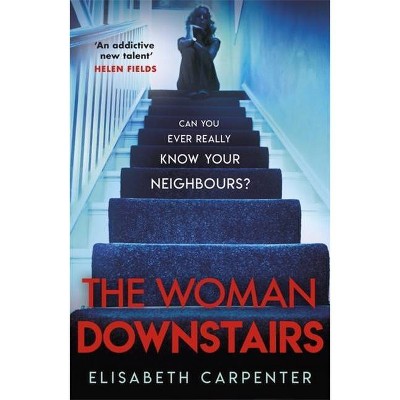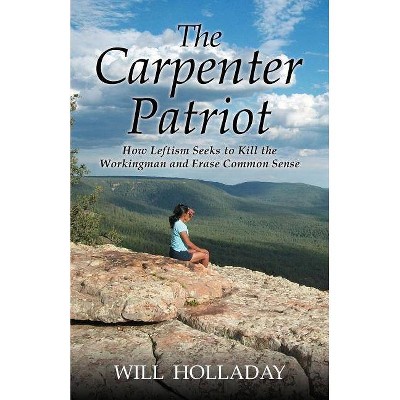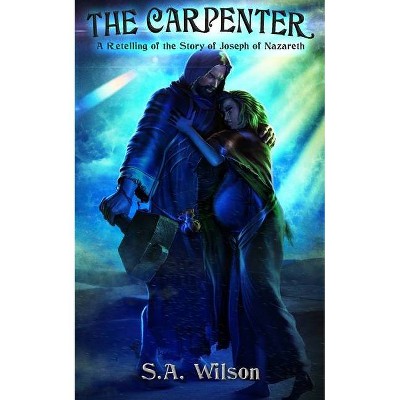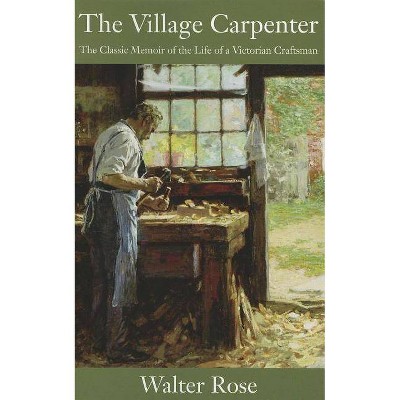The Wooden Nickel - by William Carpenter (Paperback)
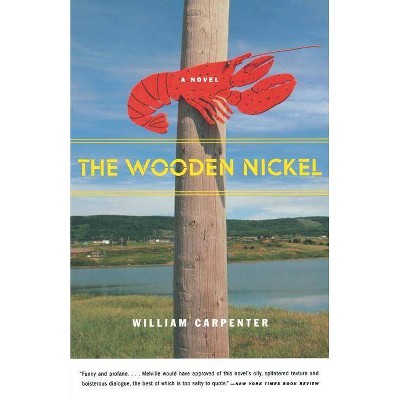
Similar Products
Products of same category from the store
AllProduct info
<p/><br></br><p><b> About the Book </b></p></br></br>"The Wooden Nickel" is a boat. Its owner, Lucky Lunt, is an endangered species: a lobsterman who works the same Maine waters as his father. But the world is changing fast--and soon he is embroiled in a turf war that forces him to abandon all the rules: family, health, finance, and even the rules of the sea.<p/><br></br><p><b> Book Synopsis </b></p></br></br>Lucky Lunt is an endangered species: a third generation lobsterman who works the same Maine waters as his father and grandfather in a boat called The Wooden Nickel. He can identify every car in town from the sound of its engine, but his world is changing faster then he can fathom. His wife has become an artist, selling sea-glass sculptures to tourists. His daughter is bound for college, while his son has turned angry and lawless. Lucky's own heart is failing him, too. An operation has kept it ticking, but he can't run the boat alone any more. <p/> As the spring lobster season opens, the only deckhand Lucky can find to help load his traps is Ronette, the not-quite-divorced wife of the local lobster wholesaler. When the two make it out to the fishing grounds, someone else's buoys are bobbing in his ancestral waters. Before he knows it, Lucky is in a lobster war and has abandoned all the rules: family, health, finance, even the rules of the sea that have guided him throughout his life. As waves of trouble turn into a flood tide, Lucky's pride propels him into an epic confrontation with his enemies and a rogue whale -- a battle his unreliable heart may not survive. <p/><i>The Wooden Nickel</i> is a classic story of a man raging against a changing world, full of pathos and comedy. It is a remarkable novel by a writer with a powerful, distinct, and original voice.<p/><br></br><p><b> Review Quotes </b></p></br></br><br>[Carpenter's] instrument is the salty, sullen, irrepressibly profane voice of its protagonist Lucas 'Lucky' Lunt. . . . Mr. Carpenter keeps a nice balance between the consistent focus on Lucky's abrasive sensibility and the novel's busy plot. . . . There are delights aplenty distributed among Lucky's rude pronouncements. . . . There's a subtle patter of imagery working throughout as well. Mr. Carpenter finds fresh and precise metaphors perfectly suited to Lucky's limited though by no means simple thought processes. . . . The novel is a hoot with a heart, a raucous portrayal of working-class life in extremis and of a possibly dying way of life that isn't going anywhere without one hell of a struggle. Mr. Carpenter's Lucky Lunt is an irresistibly vivid character-a more than worthy companion to the salt-of-the-earth types who've been appearing in the recent northeastern regional fiction of . . . Carolyn Chute, Maine's Richard Russo, and New Hampshire's Ernest Hebert. You might not want to invite Lucky to your next book club meeting. But a few bracing, expletive-filled hours aboard <i>The Wooden Nickel</i> with him just might do your own heart a modest world of good.--<b>Bruce Allen</b>, <i><b>Washington Times</b></i><br><br>Archie Bunker would look like Ralph Nader alongside the robust, profane life force who easily dominates this zesty, entertaining novel by the Maine poet and author.... Lucky is a terrific creation... and the unquenchable source of malevolently funny one-liners that can drop you dead in your tracks.... An insouciant antipastoral as bracing and bitter as a January nor'easter. Don't miss it.--<i><b>Kirkus Reviews</b></i><br><br>Carpenter's prose matches the harsh, gritty life of the seaman. The language is strong, and the gruff characters are more likely to accept the ancient laws of the sea than the laws of humans. . . . This realistic portrayal of a harsh life in a closed society holds rewards for those willing to look below the surface.--<b>Debbie Bogenschutz</b>, <i><b>Library Journal</b></i><br><br>Combining the artistic precision of poetry and the narrative power of an epic, William Carpenter has written a classic American novel about one lobsterman's furious battle against the laws of land and sea. . . . The white-hot center of this literary tour de force is Lucky Lunt. . . . Like Captain Ahab, Lucky Lunt soon renounces his family, his community and the laws of nature to catastrophic results. Like Melville, Carpenter has drawn the searing image of a man and a way of life with no place left to go.--<b>John Robinson</b>, <i><b>Maine Sunday Telegram</b></i><br><br>Funny and profane. . . . This is a modern story, with [a] painful lesson about what happens to rugged traditionalists, like Lucky, who try to fight change. Melville would have approved of this novel's oily, splintered texture and boisterous dialogue, the best of which is too salty to quote here.--<b>Sally Eckhoff</b>, <i><b>New York Times Book Review</b></i><br><br>In Lucas 'Lucky' Lunt, William Carpenter . . . has concocted a character so real, you can smell the chum wafting off his oilskins. And as crusty and unreconstructed as he is, you have to love him. . . . Characters of Lucky's sort existed long before Melville's narrator first told us to call him Ishmael. Nothing would be easier, then, than to render this story as a bobbing buoy line of clichés. But Carpenter succeeds grandly in sidestepping stereotype, using an inimitable voice to spit a tale suffused with crabby humor, wry social critique and, yes, pathos. Much of his success lies in how he gets so many things <i>right.</i> . . . It's obvious. . . that the author has done his homework. . . . More rewarding than these slice-of-life details is Carpenter's pitch-perfect ear for idiomatic speech patterns and smutty turns of phrase. . . . A character like Lucky has a special resonance these days. <i>The Wooden Nickel</i> seems to be suggesting that, despite his perseverance, Lucky and men like him may soon be as endangered as their over-fished catch. Carpenter gets a lot of things right; on this point, let's hope he's wrong.--<b>Mike Miliard</b>, <i><b>Boston Phoenix</b></i><br><br>Move over Richard Russo, there's an impressive new chronicler of the lives of hard-edged working men on the scene.... Carpenter's prose is strong and sinewy: the Maine fishing community is evoked with pungent realism, and the characters are memorable in their attempts to eke out an existence in a harsh environment. This is a fully engaging story that creates a powerful portrait of a man struggling to make sense of a world that seems rigged against him.--<i><b>Publishers Weekly</b></i><br><br>Powerful writing. . . . <i>The Wooden Nickel</i> will be the punchiest, raunchiest Maine coast lobstering novel you'll encounter in a long while.--<b>Michael Kenney</b>, <i><b>Boston Globe</b></i><br><br>To author the human story on the page, fearlessness is a requirement. Because William Carpenter is ferociously, magnificently, and absolutely <i>fearless, </i> the people who walk the pages of this book and <i>The Wooden Nickel, </i> which rides the truly living sea in this book... they <i>live.</i> I will never forget Lucky Lunt and his loved ones.--<b>Carolyn Chute</b>, <i><b>author of The Beans of Egypt, Maine, and Snow Man</b></i><br><br>Uncompromising.... The author, who is also an award-winning poet with three published collections, twines image and idea with impressive skill.... Carpenter draws a richly detailed portrait of a coastal Maine community. His descriptive writing, especially when Lucky takes the Wooden Nickel out on its rounds, is piquant and evocative, and there's always added pleasure in reading a novel when you learn the particulars of a trade. Carpenter... also has a wonderful ear for the language of his reagion.... <i>The Wooden Nickel</i> earns some comparisons to Annie Proulx's <i>The Shipping News.</i>--<b>Porter Shreve</b>, <i><b>Chicago Tribune</b></i><br><br>Under the pen of a skilled writer like William Carpenter, Lucky leaps to life and you buy his story-hook, line, and sinker. . . . A funny, funny book. . . . A good storyteller-and Carpenter is a good one for sure-can lead readers on an incredible adventure where everything that happens is breathtaking and surprising yet, in retrospect, absolutely inevitable. In Lucky's life, one thing leads to another, and hard choices are forced unceasingly upon our unlucky but resilient hero. . . . Carpenter's writing is vivid and lively, filled with earthy dialogue and hilarious descriptions. He creates characters of memorable dimension and puts them into situations that spring to life on the page.--<b>Helen Parramore</b>, <i><b>Tampa Tribune & Times</b></i><br><br>William Carpenter has a great ear for the talk of Maine lobstermen and a great eye for the things (boats, motors, guns, lobster) with which they live. Lucky Lunt, the hero of <i>The Wooden Nickel, </i> is superbly competent with these things but otherwise he's wired for trouble. The story rips along full-throttle. Just one of the many pleasures is that in spite of Lucky's bad moves you're still rooting for the guy.--<b>John Casey</b>, <i><b>author of Spartina and The Half-Life of Happiness</b></i><br><p/><br></br><p><b> About the Author </b></p></br></br><b>William Carpenter</b> teaches literature at the College of the Atlantic in Maine. His first novel, <i>A Keeper of Sheep</i>, was published by Milkweed Editions in the mid-90s to critical acclaim. He has also written three volumes of poetry which won numerous awards in the US and abroad.
Price History
Price Archive shows prices from various stores, lets you see history and find the cheapest. There is no actual sale on the website. For all support, inquiry and suggestion messages communication@pricearchive.us
